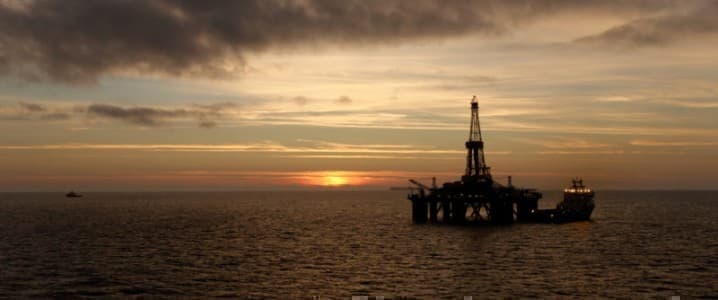Small oil producer New Zealand has halted exploration of a potentially major oil field in the wake of the Covid-19 pandemic and increased regulator pressure. New Zealand Oil and Gas (NZOG) won the contract in 2016 to drill an exploration well in the Barque prospect, in the Canterbury Basin to the east of New Zealand, at a projected cost of US$120 million. The company was initially given until June 2020 to drill the exploration well. However, this deadline was extended to 2022 due to the difficulties faced during the Covid-19 pandemic.
The Barque is thought to hold 530 million barrels of crude oil equivalent, presenting huge potential for the country’s small oil portfolio. New Zealand’s proven oil reserves amount to around 64 million barrels, making the Barque prospect a significant place of interest for greater exploration.
However, the planned exploration was high risk, with just a 10 to 20 percent estimated chance of striking oil.
NZOG and partner Beach Energy applied on Tuesday to surrender their permit to explore the basin due to several challenges creating unfavourable conditions for exploration.
If successful, production in the region was expected to earn NZOG $32 billion in royalties and taxes over its lifespan. In addition, it was expected to provide 5700 jobs and increase New Zealand’s GDP by $7.1 billion (US$5.1 billion).
Related: What The #%@$ Is Happening In Texas?
A combination of regulatory challenges, the increased costs and lower availability of drill rigs due to Covid-19 restrictions, and difficulties in the two companies’ other projects have meant the need to halt Canterbury Basin exploration.
Experts are now calling the security of New Zealand’s energy into question, with the available offshore area for exploration having shrunk by 80 percent since April 2018.
Petroleum Exploration and Production Association of NZ CEO, John Carnegie, explains of the decrease in exploration potential, “This raises serious questions for New Zealand’s long-term energy security, given the absence of realistic alternatives to natural gas to power industries, heat our homes and keep electricity prices down”.
Relying on coal plants to fuel the country could be detrimental to New Zealand’s environmental policies, increasing its carbon footprint due to the lack of alternative energy sources.
While exploration in this region has ceased, NZOG has stated its dedication to other projects around the country, including production at the Kupe Gas Field in South Taranaki. Which is a major supplier of New Zealand’s oil needs.
However, Andrew Jeffries, CEO of NZOG has raised concerns about the current state of New Zealand’s oil sector. He expects other contracts to be retracted due to the high-risk nature of exploration, with regulators imposing new restrictions on a regular basis.
Meanwhile activists and environmental groups across the country continue to put pressure on the government to impose stricter regulations regarding deep-sea drilling, saying the risk of an oil spill is too big a threat to the environment to continue these types of practices.
Due to the insecurity of the country’s energy, and the difficulty in carrying out exploration in potentially lucrative oil zones, it seems the government must produce a clear strategy for the future of the country’s energy. With regulators imposing greater restrictions and activists calling for greener policies, New Zealand must come up with an alternative for its mainly coal-driven energy.
By Felicity Bradstock for Oilprice.com
More Top Reads From Oilprice.com:
- Is This Oil Rally The Start Of Something Much Bigger?
- Texas Winter Storm Highlights The Importance Of Fossil Fuels
- What The Media Isn’t Telling You About Texas Blackouts

















